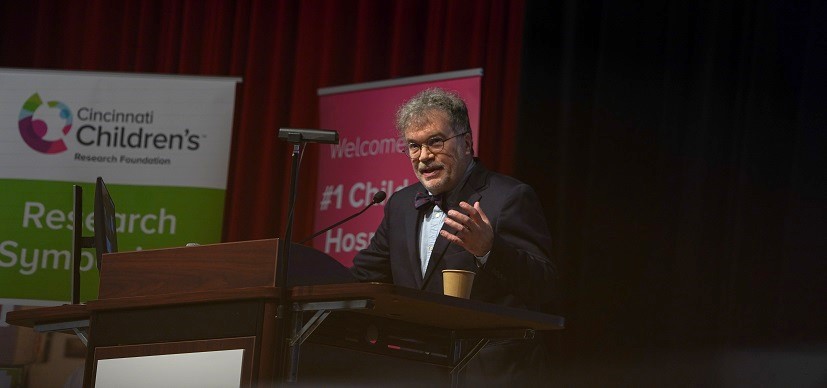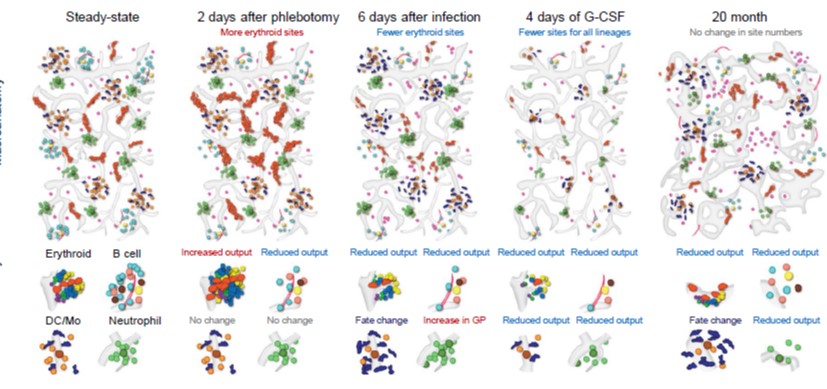Paulsen, Frenck Co-Author NEJM Report Detailing Clinical Trial Data for Child-Sized COVID-19 Vax
Post Date: November 11, 2021 | Publish Date: Nov. 9, 2021
Observed vaccine efficacy in the 5 to 11 age group was 90.7%, co-authors reported.


Grant Paulsen, MD, and Robert Frenck, MD, both of the Gamble Vaccine Research Center at Cincinnati Children’s, were co-authors of a study published Nov. 9, 2021, in the New England Journal of Medicine that details clinical trial findings recently used to approve the first COVID-19 vaccine for U.S, children ages 5 to 11.
The study, which included 31 other scientists across the U.S. and Europe, reports on the safety, immunogenicity, and efficacy of the Pfizer/BioNTech vaccine BNT162b2. The clinical trial was funded by BioNTech and Pfizer.
“A Covid-19 vaccination regimen consisting of two 10-μg doses of BNT162b2 administered 21 days apart was found to be safe, immunogenic, and efficacious in children 5 to 11 years of age,” the authors concluded.
On the basis of data presented in the report, the U.S. Food and Drug Administration on Oct. 29, 2021, extended the emergency use authorization for the Pfizer/BioNTech vaccine to include children 5 to 11 years old. The FDA had authorized emergency use for those 12 to 15 in May 2021 and for those 16 or older in December 2020. BNT162b2 recently received U.S. licensure for immunization in those 16 years or older.
Paulsen served as the site principal investigator for the part of the study conducted at Cincinnati Children’s. Frenck, Director of the Gamble Center, was co-investigator for the local part of the study.
The Gamble Vaccine Research Center is one of the top sites in the nation for the testing, evaluation, and development of vaccines. Including adults, over 1,400 individuals are participating in one of the 11 COVID vaccine clinical trials at Cincinnati Children’s. That includes Pfizer/BioNTech vaccine as well as vaccines manufactured by AstraZeneca, Moderna, and CyanVac.
Key Findings for the 5-11 Age Group
During an earlier phase 1 study, which included the Gamble Center, 48 children received of of three doses of the Pfizer-BioNTech vaccine: 10 micrograms, 20 micrograms, or 30 micrograms. On the basis of reactogenicity and immunogenicity, the 10 microgram dose was selected for further study. This dosage is one-third of that given to adolescents and adults.
In the new phase 2–3 trial, which also included the Gamble Center, 2,268 children were randomly assigned to receive the BNT162b2 vaccine (1,517 children) or placebo (751 children). Participants received two injections, 21 days apart.
“In the 5-to-11-year-olds, as in other age groups, the BNT162b2 vaccine had a favorable safety profile,” the authors stated. “No vaccine-related serious adverse events were noted.”
Most side effects were mild to moderate, lasting one to two days. Injection-site pain was the most common local reaction, occurring in 71% to 74% of recipients. No myocarditis, pericarditis, hypersensitivity, or anaphylaxis was reported.
The observed vaccine efficacy in the 5 to 11 age group was 90.7%, the authors reported. Among those without evidence of previous SARS-CoV-2 infection, there were three cases of Covid-19 (with onset 7 days or more after the second dose) among BNT162b2 recipients and 16 among placebo recipients.
Why younger children need vaccines
The availability of safe and efficacious vaccines for school-age children is critical, the authors stated.
“School-age children represent a high proportion of Covid-19 cases, and they may play an important role in the transmission of SARS-CoV-2, including spread of the highly transmissible B.1.617.2 (or Delta) variant,” the authors noted. “At the end of September 2021, persons younger than 18 years of age represented more than a quarter of weekly U.S. cases and 1.6 to 4.2% of cumulative hospitalizations. Covid-19–associated hospitalizations among children have increased steadily since early July 2021 in the United States; prevalence among 5-to-11-year-old children reached an all-time high of 1.1 per 100,000 population in late September. The pandemic has also interrupted education and has adversely affected children’s social and emotional development and mental health.”
While Covid-19 is generally milder in children than in adults, severe illness and long-term complications can occur after the primary infection – including multisystem inflammatory syndrome in children (MIS-C), the authors wrote.
Other vaccines against COVID-19 are authorized for emergency use, but BNT162b2 is the only one currently authorized for use in those 5 to 11.
“Without effective Covid-19 vaccines for this age group, children could potentially become ongoing reservoirs of infection and sources of newly emerging variants,” the authors wrote. “Covid-19–associated school closures and quarantines also have social and economic costs for families and caregivers. Widespread vaccination across age groups is therefore essential in ongoing efforts to curtail the pandemic.”
From myth-busting facts to vaccine clinic hours, get more COVID-19 information from Cincinnati Children’s
| Original title: | Evaluation of the BNT162b2 Covid-19 Vaccine in Children 5 to 11 Years of Age |
| Published in: | The New England Journal of Medicine |
| Publish date: | Nov. 9, 2021 |






